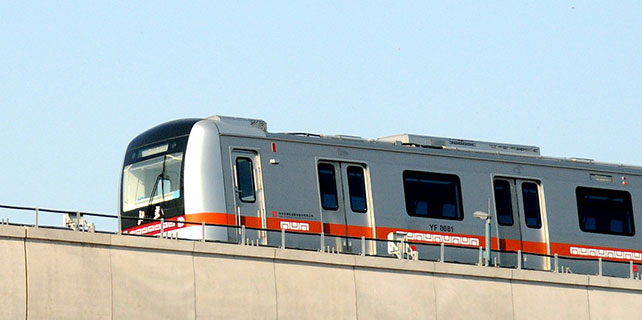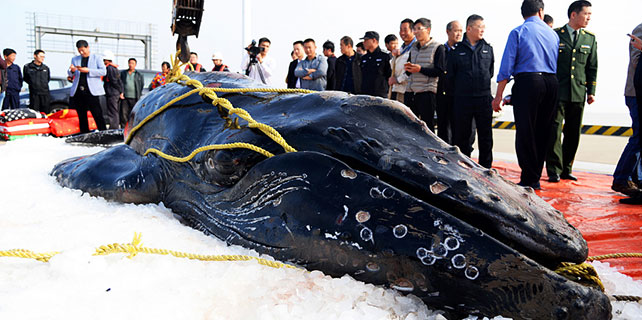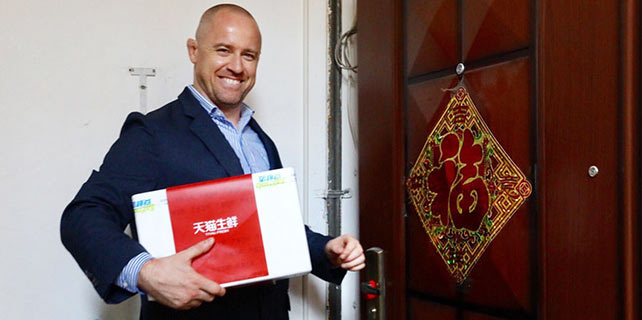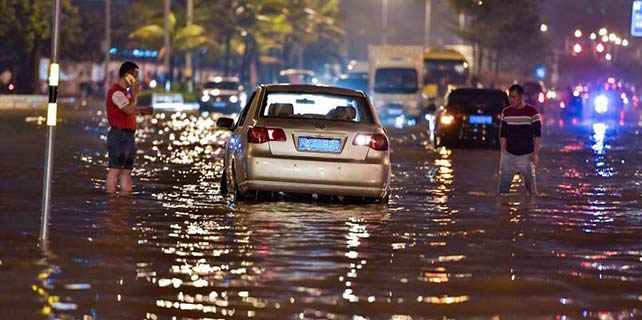S. Korea postpones college exam after quake
SEOUL - Authorities took the unprecedented step of postponing nationwide college entrance exams after a rare magnitude 5.4 earthquake hit the southeast on Wednesday, sparking alarm in the country that seldom experiences significant tremors.
The quake, the second most powerful recorded in the country, struck at a depth of 9 kilometers near the city of Pohang at around 2:30 pm, the Korea Meteorological Administration said.
Seven people were injured, Seoul's public administration ministry said, but they warned that number could rise because the quake was shallow.
It also left about 1,500 homeless, officials said on Thursday. More than 1,000 houses and dozens of other buildings and cars were damaged or destroyed, and cracks and other damage were found in military facilities, bridges, port facilities and water supply facilities.
The Korean Peninsula is rarely troubled by significant quakes. Wednesday's quake was felt across the country, including in the capital Seoul.
It came a day ahead of the all-important college entrance exam during which the whole nation falls silent to help teenagers focus on the annual event, whose result could define their future in the hyper-competitive society.
The Ministry of Education announced on Wednesday that the exam would be postponed by a week because damage had been caused to five schools in Pohang where students were set to take the test, Yonhap news agency reported.
"The fact that students' safety is the most important, and the need to ensure fairness in carrying out the test, has led us to the decision," Yonhap quoted Education Minister Kim Sang-gon as saying.
"After they did full inspections in all 14 schools in Pohang that have been designated to hold the exam, five of them were found to have developed cracks," he said.
This is the first time a natural disaster had forced such a reschedule of the crucial exams, Yonhap said.
South Koreans take significant steps to ensure their young students are not distracted during the exams.
Seoul's financial markets and many businesses open late in the day to clear traffic for test-takers, while airport landings and takeoffs are suspended for 30 minutes during the main language listening test.
Photos and video footage sent to local TV stations showed crumbled street walls, furniture violently shaking inside people's homes and people rushing out of buildings in panic.
Shattered storefronts and goods tumbling off store shelves were seen in images posted on social media, as well as cars smashed by fallen bricks and cracks in the ground.
Emergency centers nationwide were flooded with thousands of calls seeking information, while Kakao Talk - the South's top mobile messenger application - reported service disruption due to heavy traffic.
Pohang is home to the headquarters of Posco, the world's fourth largest steelmaker. No immediate damage was reported in the firm's steel mills.
Wednesday's quake was followed by multiple aftershocks including a magnitude 4.3 tremor that hit about two hours later.
Local nuclear reactors were operating without disruption, Yonhap said, citing officials at Korea Hydro and Nuclear Power.
The most powerful quake recorded in the South was a magnitude 5.8 tremor that hit the city of Gyeongju in September last year.
AFP-AP
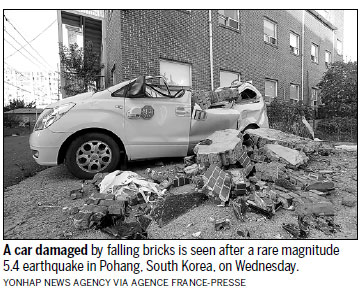
(China Daily 11/17/2017 page11)




